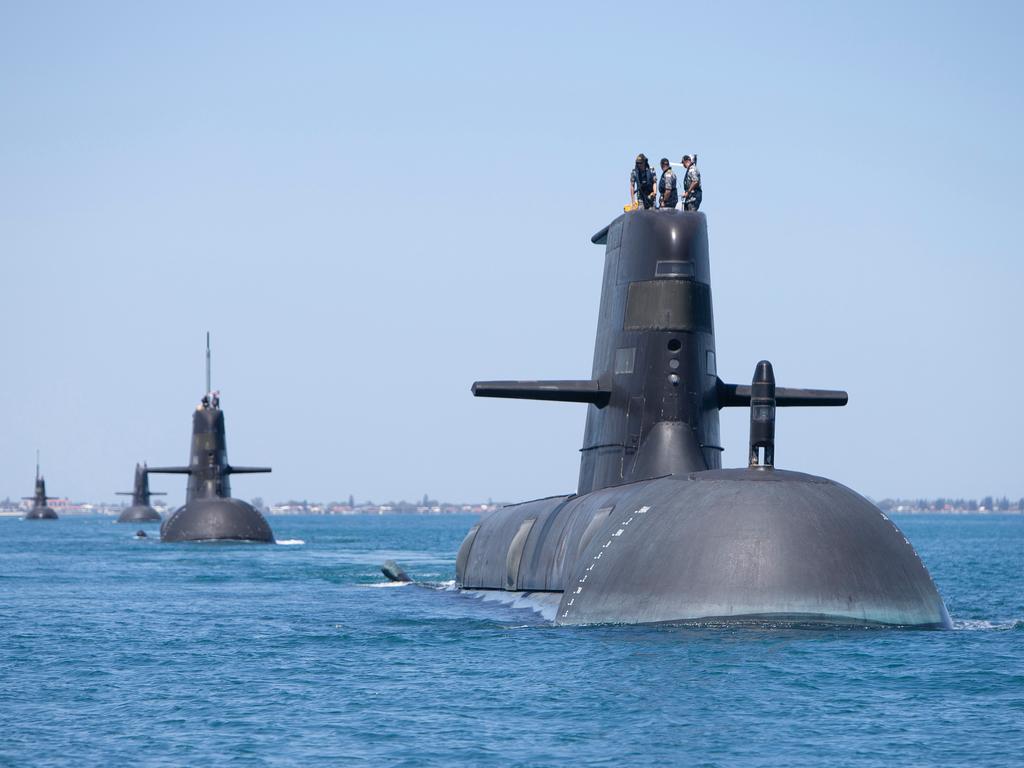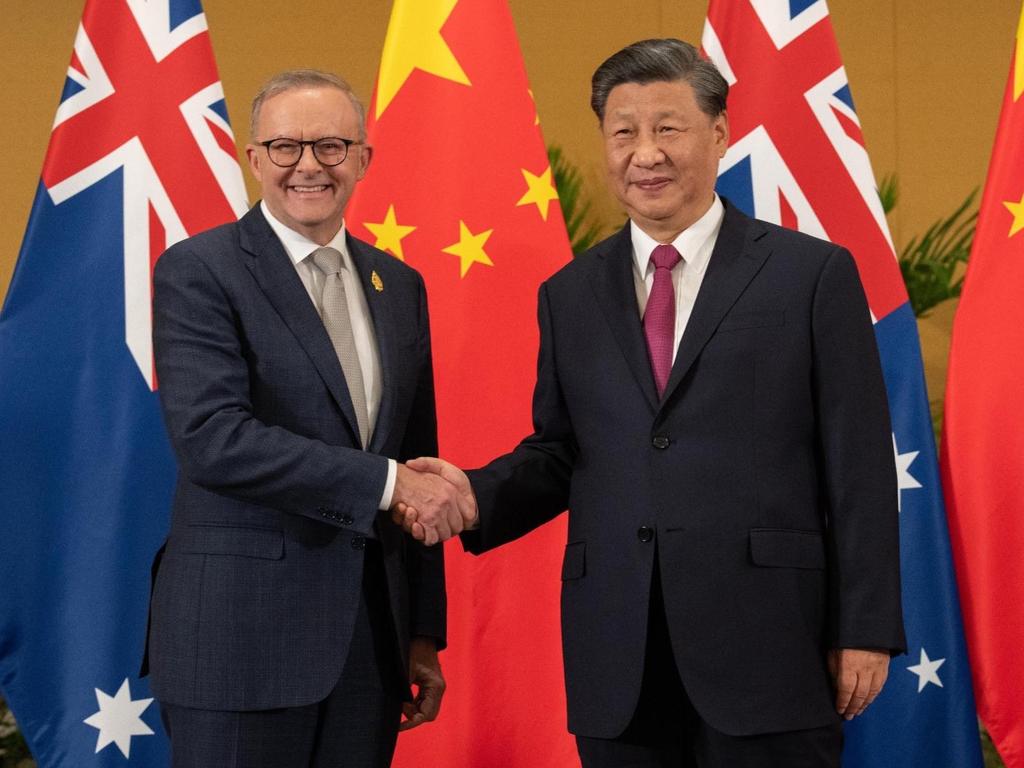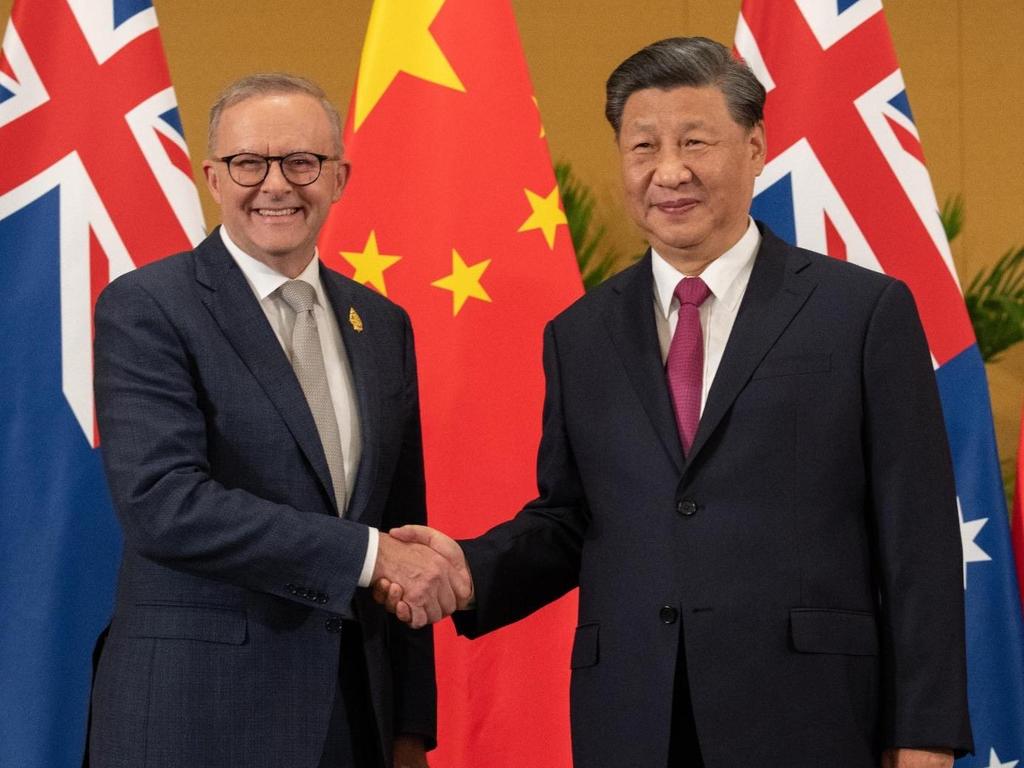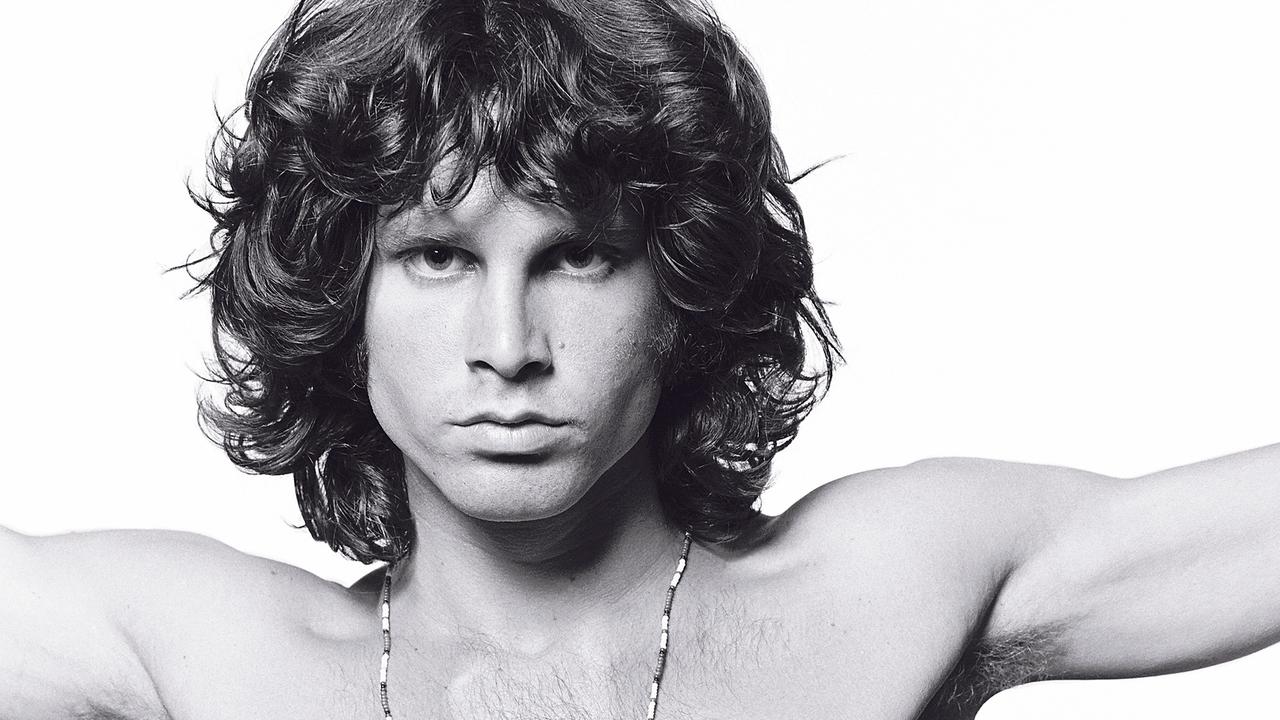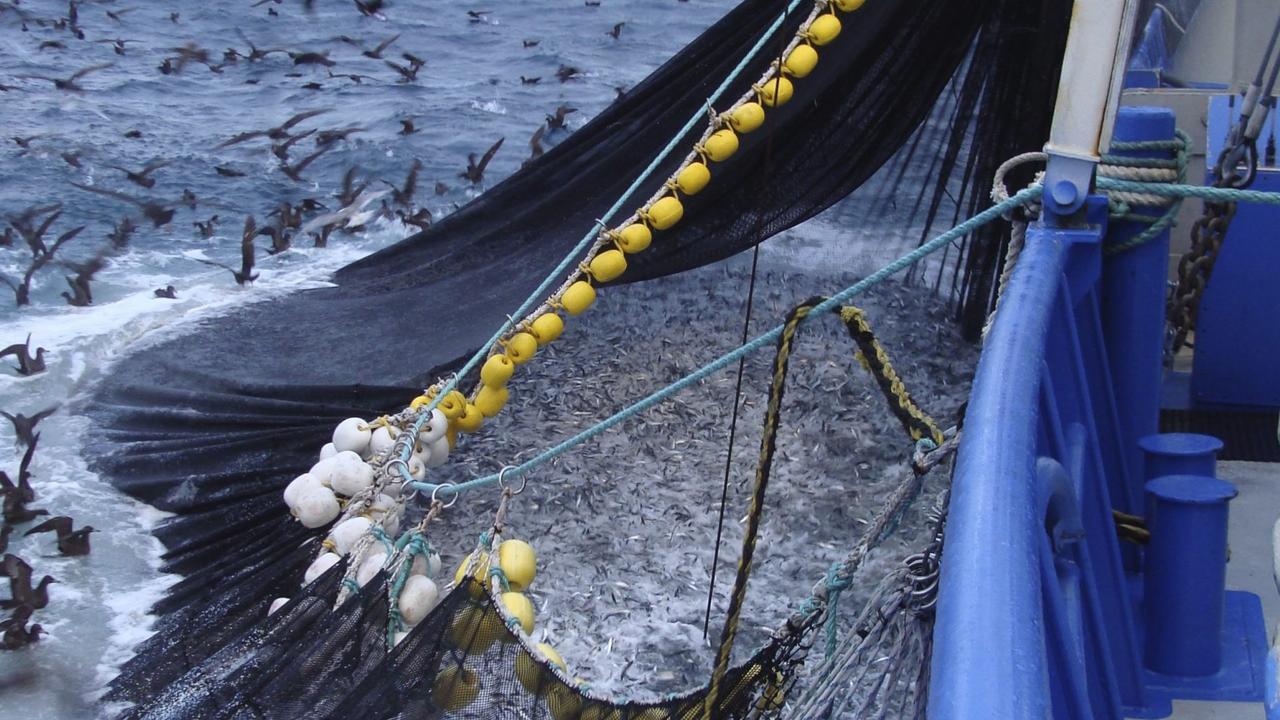Anthony Albanese meets Xi Jinping at G20 summit in Bali
Anthony Albanese has met Xi Jinping in Bali, telling the Chinese President Australia wants to work with Beijing, while refusing to back down on key complaints.
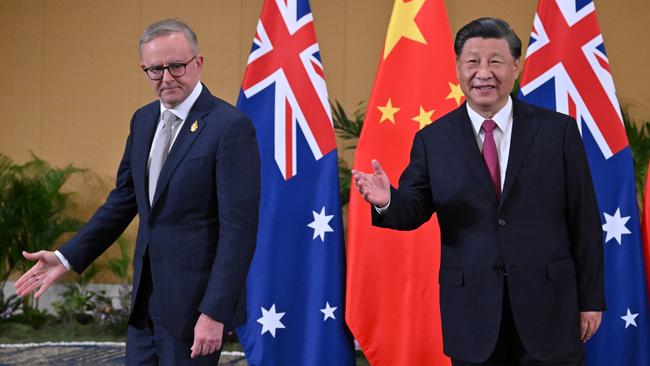
Anthony Albanese has met with Xi Jinping in Bali, telling the Chinese President Australia wants to work with China in the interests of both countries and regional peace, while refusing to take a backwards step on the nation’s key complaints with Beijing.
The leaders met for 32 minutes on the sidelines of the G20 summit in long-awaited talks that signalled an improvement in bilateral ties after years of heightened tensions.
“We have had our differences. And Australia won’t resile from our interests or our values.,” the Prime Minister told Mr Xi at the opening of their long-awaited meeting.
“But our bilateral relationship is an important one. Both sides have worked to stabilise the relationship based upon mutual respect and mutual benefit.”
The Chinese President, who has refused to have a formal meeting with an Australian prime minister since Malcolm Turnbull in 2016, told Mr Albanese that the Australia-China relationship was “worth cherishing”.
Mr Xi thanked Mr Albanese for his efforts to handle Australia-China relations in a “mature manner”, declaring: “I attach great importance to your opinion.”
He said the bilateral relationship had experienced some difficulties but ”this is something that we would not like to see”.
“Because China and Australia are both important countries in the Asia-Pacific region, we should improve, maintain and develop our relationship, as it is consistent with the fundamental interests of both countries’ people, and it is beneficial to peaceful development of the region and the world,” Mr Xi said.
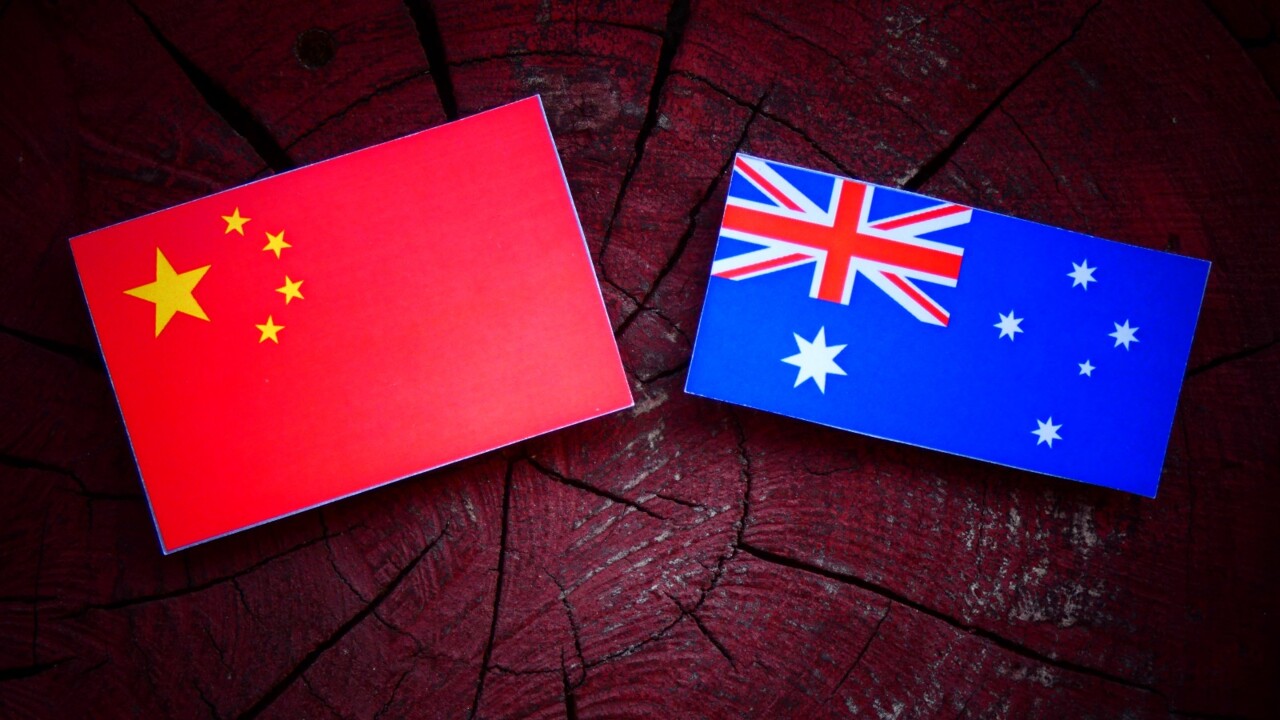
Mr Albanese said it was an “important step forward” for the bilateral relationship but key pressure points remained. He raised Beijing’s trade bans against Australian exports, called for the release of detained Australians Cheng Lei and Yang Hengjun, and asked Mr Xi to use his influence with Russian President Vladimir Putin to discourage him from using nuclear weapons and to help bring about peace in Ukraine.
He also invoked former Labor prime minister Gough Whitlam’s move to establish diplomatic relations with China nearly 50 years ago, saying Whitlam and Chairman Mao had agreed on principles to guide the relationship based on equality, mutual respect and a commitment to coexist peacefully, “and these principles remain important today”.
Going into the meeting, Mr Albanese sought to play down expectations of any breakthroughs, saying he was not setting any preconditions and the meeting itself was a successful outcome.
Earlier, Chinese Foreign Ministry spokeswoman Mao Ning said in Beijing that the improvement in Australia-China would build trust between the countries and strengthen regional peace. “Improvement of China-Australia ties serves the fundamental interests of the two countries and meets the shared aspiration of the two peoples and the international community,” Ms Mao said.
“We hope Australia will follow the spirit of mutual respect and seeking common ground while reserving differences, move in the same direction as China, strive for mutual benefit and win-win results, rebuild mutual trust and push the bilateral relationship back on the right track.”
Asia Society Australia senior fellow Richard Maude said it was significant that Australia had achieved the meeting without making any concessions to China’s demands. “Australia finds itself in a stronger position now in relation to the bilateral relationship, for not having bent to China’s will,” Mr Maude said.
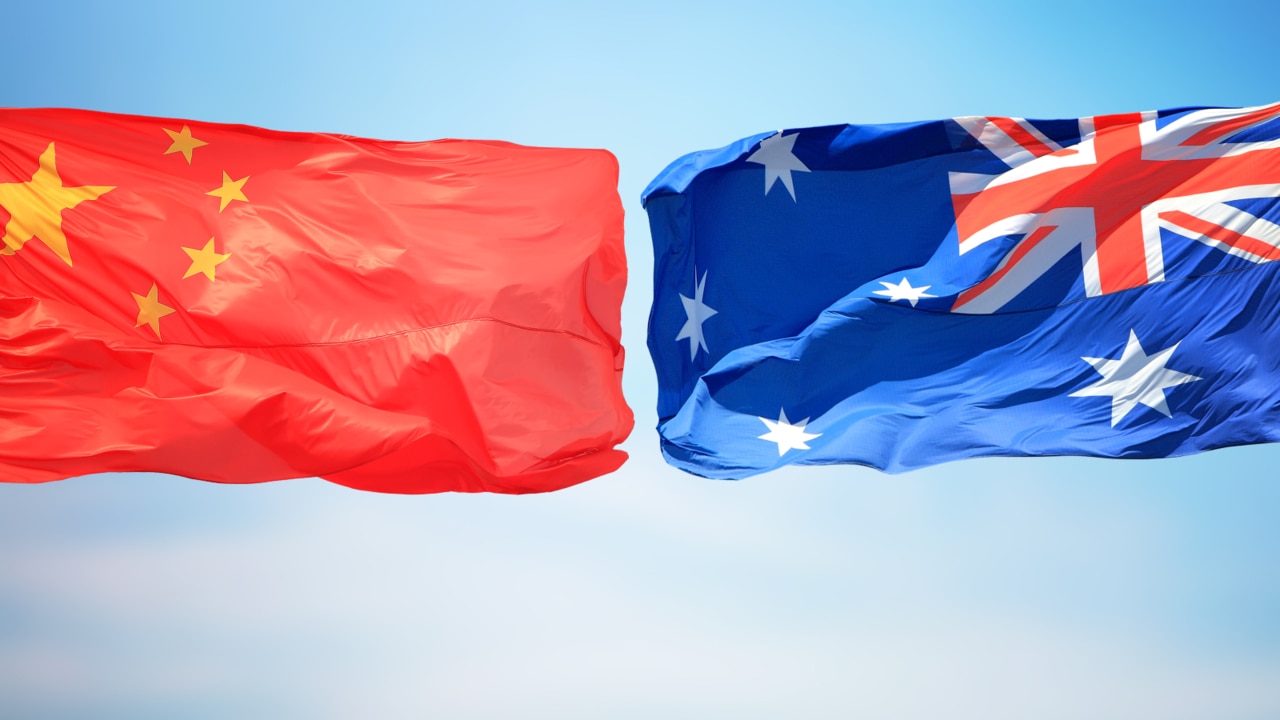
But he said it would be a mistake to read the Chinese leader’s talks with Mr Albanese or Mr Biden as a sign of fundamental change to China’s strategic ambitions. He said Beijing continued to see itself as locked in a long-term struggle with the West “in which China must prevail”.
Mr Maude said Australia’s ambitions were realistic, and the government understood that merely talking to China didn’t solve the “deep structural clash in our interests”. He said there was unlikely to be a short-term lifting of Chinese trade bans against Australia. China watchers said a positive resolution for Ms Cheng and Dr Yang, whom Beijing accuse of espionage, would likely take time.
The business community hailed the meeting a “tremendous reset” in the Australia-China relationship, and a “win for Australia”.
The meeting followed Labor’s “quiet diplomacy” strategy set in motion before the May election that avoided inflaming tensions with Beijing while standing firm on key points of national interest.
Opposition foreign affairs spokesman Simon Birmingham, who was repeatedly snubbed by his Chinese counterpart when he was trade minister, welcomed China’s ending of its ban on ministerial dialogue with Australia.
Senator Birmingham said the change of government had provided an opportunity for dialogue with Beijing. But he defended the Coalition’s hard-line stance on Beijing when it was in government, including its ban on high-risk Chinese telcos and crackdown on foreign interference.
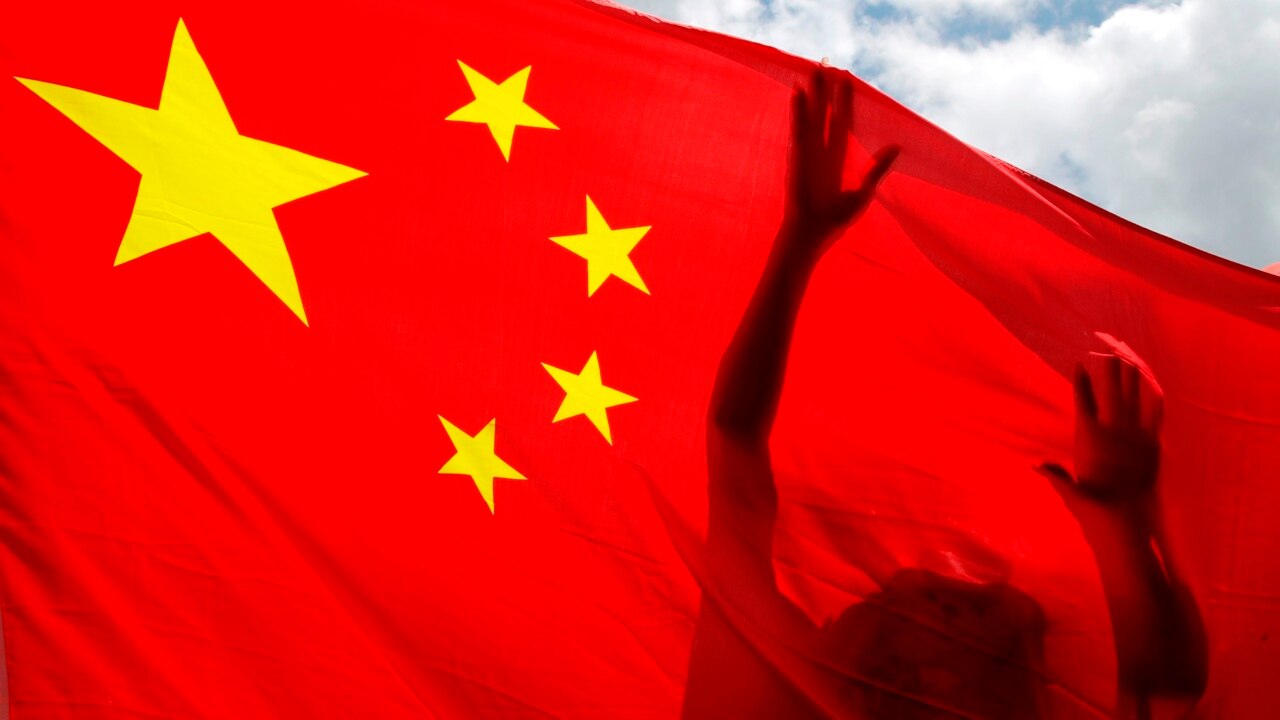
The Albanese-Xi meeting followed talks between Mr Biden and Mr Xi 24 hours earlier, which appeared to place a floor under spiralling relations between Beijing and Washington.
“We’re going to compete vigorously. But I’m not looking for conflict, I’m looking to manage this competition responsibly,” Mr Biden said after the talks.
He raised a raft of issues with Mr Xi including China’s “increasingly aggressive” actions towards Taiwan, human rights in Xinjiang, Tibet, and Hong Kong, and its market-distorting trade practices which harmed American workers.
But he said there “need not be a new Cold War”.
Mr Xi said the global community expected the superpowers to handle their relationship better.
“As leaders of the two great powers, China and the United States, we must play a steering role, find the right development direction for relations between the two countries, and promote the improvement of China-US relations,” he told China’s Xinhua news agency.
Despite the easing of tensions between the superpowers, China and Russia loomed as a barrier to a consensus G20 communique, amid calls by Western leaders for a strong statement against Vladimir Putin’s war in Ukraine.
Indonesian President Joko Widodo, the G20 host, urged the US to show “flexibility in deliberation of the (joint) declaration”, and not stand in the way of a communique by insisting on a condemnation of Russia’s aggression against Ukraine.

